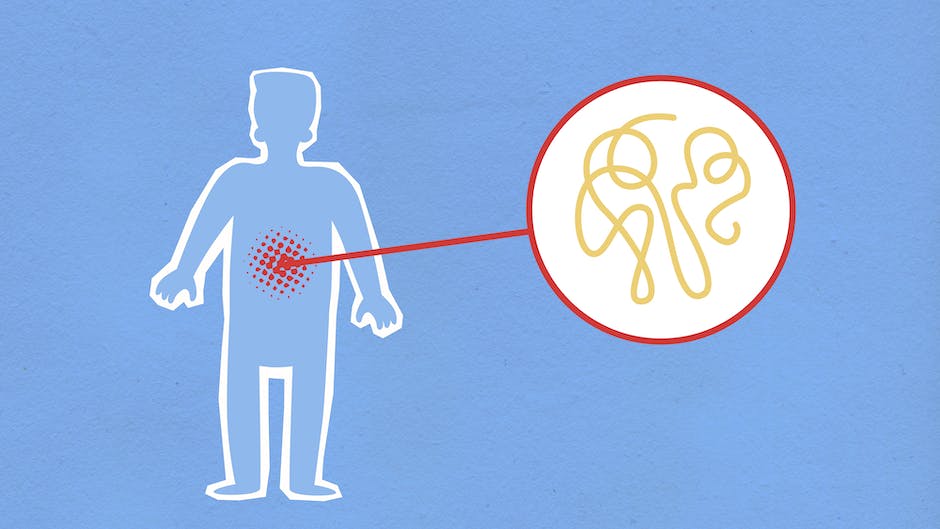In the expansive world of healthcare, gout stands as a prevalent ailment, significantly affecting individuals in various ways. Gout, a complex form of arthritis, has traditionally been managed with a range of conventional treatments, each with its unique processes and potential side-effects. However, the exploration of alternative medical practices such as Homeopathy presents a fresh perspective on possible treatments for this condition. In this sense, understanding the basic principles of homeopathy, specific homeopathic remedies, their effects, safety and how to make informed decisions about these treatments becomes indispensable for anyone considering this path.
Understanding Gout
Understanding Gout:
Gout is an inflammatory form of arthritis that is characterized by sudden, severe attacks of pain, swelling, redness, and tenderness in the joints. It is triggered by a buildup of uric acid in the blood, the waste product that is produced when the body breaks down purines, substances found in human cells and many foods.
This excess uric acid can form sharp, needle-like crystals in the joint or surrounding tissues. These crystals can trigger inflammation and severe pain during a gout attack. Gout typically strikes the metatarsophalangeal joint on the base of the big toe, but it can also affect other joints like the ankles, knees, elbows, wrists, and fingers.
Symptoms of gout often come on quickly and usually start at night. These may include intense joint pain, lingering discomfort, inflammation and redness, and limited range of motion. The harshness of the pain can be debilitating, causing people to be unable to walk or move the inflamed joint.
Traditional treatments for gout typically involve medication to control pain and inflammation, and to lower uric acid levels to prevent future attacks. These can include nonsteroidal anti-inflammatory drugs (NSAIDs), corticosteroids, and drugs like allopurinol that block uric acid production or improve uric acid removal.
A Close Look at Homeopathic Remedies for Gout
If you are considering exploring new avenues for gout treatment, it may be worth learning about homeopathy. Unlike traditional medicine which primarily focuses on lowering uric acid levels to provide relief, homeopathy takes a unique and holistic approach. It posits that the symptoms we observe are signals of the body working to combat imbalance or disease. Hence, homeopathy is designed to stimulate natural healing processes in the body.
Specially, for gout treatment, homeopathy offers a range of options with minimal dosage, each meant to trigger the body’s innate ability to heal itself. Regularly suggested homeopathic measures for gout are:
- Belladonna: This is typically suggested for sudden and violent symptoms, usually accompanied by redness, heat, and swellings.
- Bryonia: Preferred when the discomfort is exacerbated by movement but eases with rest.
- Ledum pal: This is generally recommended for gout conditions that result in swollen ankles and a painful big toe that feels cold but gets relieved with cold compresses.
- Colchicum: This is used when there is heightened sensitivity to touch, especially when discomfort heightens during evenings and night.
- Benzoic acid: This is used when urine has a strong odor.
It is important to understand that homeopathic treatment is based on individual symptoms and overall health conditions. Therefore, for optimal results, it is advised to consult a certified homeopath who can tailor a precise treatment plan for you. Remember, before trying new treatments, it is imperative to discuss them with a healthcare provider as everyone’s medical history and requirements are different. Homeopathy is best utilized as a supplementary treatment and should not substitute for traditional medical treatments.

Principles of Homeopathy
Diving Deeper into the Concept of Homeopathy and Its Founding Principles
Homeopathy propounds a distinctive approach to healthcare based on the “like cures like” principle. What this means is that, contrary to traditional or allopathic medicine, which emphasizes on symptom management, homeopathy believes in tackling the root cause of ailments. It uses substances which, when given to a healthy individual, produce symptoms similar to those exhibited by the ailment.
The core foundation of homeopathy lies in its belief in personalized healthcare. According to homeopathic practitioners, physical symptoms are expressions of an imbalance in the body’s “vital force” or “life energy”. Thus, they take into account your mental, emotional, and physical state before prescribing a remedy.
Another aspect of homeopathy is the principle of minimal dosage. Homeopathic remedies are prepared through a process known as potentization, a method of successive dilution and vigorous shaking. Despite the dilution, practitioners maintain that these remedies retain a “memory” of the original substance, hence harboring healing properties.
The Application of Homeopathy to Gout
When addressing gout, homeopathy takes a unique approach. Unlike conventional medicine, which targets the management of painful symptoms such as inflammation and swelling, homeopathy aims to address the root causes of gout.
Gout is characterized by an overproduction or under excretion of uric acid, leading to the deposition of urate crystals in joints. The homeopathic approach is multi-pronged: These treatments target the regulation of uric acid levels, improvement of the body’s excretory processes, and mitigation of inflammatory responses.
Homeopathic Treatments for Gout
Several homeopathic remedies are traditionally used for gout. These include Colchicum, used for highly painful gout attacks; Ledum Pal, targeted at treating gout primarily in the big toe; and Benzoic Acid, a remedy for gout linked to a strong, offensive urine odor. Another is Belladonna which helps address redness and inflammation in the early stages of gout attacks.
Each of these remedies aims to stimulate the body’s own healing mechanisms. It’s important to note that the actual prescription of homeopathic treatments should be customized based on the individual symptoms and overall health of the person, under guidance of a professional homeopath.
Investigating the Impact of Homeopathy on Gout
Current research exploring the effects of homeopathy on chronic ailments such as gout is ongoing. Some studies have indicated the potential for homeopathic treatments to alleviate gout symptoms and lengthen the period between attacks. Anecdotal evidence via individual cases further substantiates the relief provided by homeopathic remedies.
Despite such findings, it’s crucial to recognize the varying effectiveness of these treatments due to their highly individualized nature. The different outcomes for different individuals should be duly noted. Therefore, consulting with a qualified health professional before adopting any new treatment method is always advisable.

Photo by jasondeblooisphotography on Unsplash
Homeopathic Remedies for Gout
Exploring Gout and Its Homeopathic Management
Gout is a kind of arthritis impacting millions all over the globe. It stems from the build-up of uric acid in the blood, leading to the formation of hard crystals within joints and resulting in intense pain and inflammation. It commonly targets the big toe, though it could also affect other joints like ankles and knees. The possibility of treating gout symptoms using homeopathic remedies is reinforced by various studies, promising potential ways of managing this condition.
Apis Mellifica
Apis Mellifica is a homeopathic remedy derived from the honeybee. It’s often used to treat conditions marked by inflammation and intense pain, like gout. The characteristics of the pain include a sharp, stinging sensation with redness and swelling of the affected joint. The pain typically worsens with heat and eases with cold. In clinical observational study (Eizayaga, et al., 2016), patients with various acute inflammatory conditions showed substantial improvements when treated with Apis Mellifica.
Belladonna
Belladonna, or deadly nightshade, is another homeopathic treatment for gout. It’s particularly beneficial when the gout flares are sudden and intense. Symptoms that calls for this remedy are throbbing pain and bright red coloration of the skin around the inflamed joint. It may be accompanied by a hot sensation, which is aggravated by slight movements or jarring. A retrospective observational study by Rossi, et al. (2009) found an improvement in patients’ discomfort level when Belladonna at low dilutions was used as a part of their treatment.
Colchicum
Derived from the meadow saffron plant, Colchicum is traditionally used to treat gout and rheumatism. The symptoms indicating the need for Colchicum include pain in the great toe or heel, extreme tenderness of the affected areas where even the slightest touch can cause pain, and the joints being warm and swollen. Joint pain may worsen during warm or stormy weather.
Bryonia
Bryonia Alba is made from the root of a hill-side climbing vine. It’s a versatile remedy but often recommended when gout pain is localized in knees and elbows. Gouty pains that require Bryonia as a treatment are typically aggravated by the slightest motion and relieved by rest. The use of Bryonia in managing gout was demonstrated by a trial that included 82 patients with gout, of which 57% reported significant relief from symptoms (Jacobs and Herman, 1998).
Ledum Palustre
Ledum Palustre is a shrub whose extract is used as a homeopathic remedy. It is particularly helpful when gout starts in the lower limbs and then ascends upwards. The affected joint may be swollen and feel cold, yet oddly, applications of cold compresses can alleviate the pain.
Understanding Homeopathic Treatment and Its Potential Implications
Homeopathic remedies, often created from diluted natural substances, come with a caveat of possible side effects. For example, some may contain plant extracts that could trigger allergic reactions in certain individuals. Hence, it’s often suggested to explore these homeopathic treatments under the supervision of a healthcare professional or qualified homeopath.
While some clinical trials have yielded encouraging results with homeopathy, the response can vary among individuals. It’s crucial to understand that homeopathy seeks to treat the complete individual, considering their physical, emotional, and mental wellbeing to decide the right treatment.
It’s also worth remembering that homeopathic remedies shouldn’t replace any existing medications unless approved by a health professional. Additionally, lifestyle changes like maintaining a healthy weight, moderating alcohol consumption, and reducing intake of purine-rich foods are crucial in managing gout symptoms, supplementing the potential benefits of homeopathic remedies.

Effectiveness and Safety of Homeopathic Treatments
Investigating the Efficacy of Homeopathic Treatments for Gout
Gout, an inflammatory form of arthritis, results in severe pain resulting from uric acid crystals accumulating in the joints. Many people turn to homeopathic treatments as a complement to conventional medicine, in an effort to alleviate symptoms and reduce flare-ups.
Homeopathic remedies generally rely on natural substances intended to stimulate the body’s inherent healing capabilities. Traditional homeopathic treatments for gout include Belladonna, Colchicum, and Bryonia.
However, research on the effectiveness of homeopathic gout treatments is sparse. The National Center for Homeopathy acknowledges the difficulty in pinpointing specific scientific studies focused on gout. However, anecdotal evidence, as reported by the British Homeopathic Association, suggests that these remedies could potentially decrease both the severity and frequency of recurrent gout episodes.
In a review published in the Homeopathy journal, suggestions were made that homeopathic treatments may offer benefits for rheumatic diseases like gout. While some signs of effectiveness are indicated, it’s critical to comprehend that results can vastly differ between individuals.
Safety of Homeopathic Treatments for Gout and Who Should Use Them
Typically, homeopathic remedies tend to be safe as they contain minuscule amounts of active ingredients. According to the U.S. National Library of Medicine, side effects are rare, and serious adverse effects are almost non-existent.
However, keep in mind that “natural” does not inherently mean “safe.” Homeopathic treatments, like any medication, involve inherent risks and should be used under professional supervision. While generally considered safe, the Federal Trade Commission has issued a consumer update advising that homeopathic remedies may not work for everyone and might even cause harm in certain cases.
People with mild gout symptoms or those looking for a complementary approach to conventional treatment might consider homeopathic options. On the contrary, patients with severe symptoms, kidney disease, diabetes, or other comorbidities related to gout should exercise caution while considering homeopathic treatments.
Healthcare Professionals’ Viewpoints on Homeopathic Gout Treatments
The efficiency and safety of homeopathic treatments for gout receive mixed reviews among healthcare professionals. Some doctors and researchers affirm their effectiveness, referencing longstanding use and patient accounts. Several professionals perceive these treatments as a worthwhile supplement to mainstream medications, especially for patients unable to tolerate standard gout treatments due to undesirable side effects or allergies.
Contrarily, due to the lack of comprehensive scientific studies validating the effectiveness of homeopathic treatments, skepticism persists among a segment of medical professionals. For instance, the American College of Rheumatology does not officially endorse homeopathic remedies for gout due to a dearth of substantial scientific proof.
Conclusively, although homeopathic treatments for gout may exhibit potential, their effectiveness and safety are relative, varying from one patient to another. Hence, a discussion with healthcare providers is advised for those considering these options. Balancing the potential benefits against risks, patients can then opt for a treatment that is most conducive to their individual needs and overall health.

Making Informed Decisions
Comprehending Gout and Homeopathic Treatment Options
Gout, a specific form of arthritis, is characterized by bouts of painful and inflamed joints resulting from uric acid crystal accumulation in the joints. Traditional treatment predominantly includes medications that alleviate pain, reduce inflammation, and/or decrease uric acid levels.
Contrarily, homeopathy, an alternative medical system, approaches gout management distinctively. Guided by the ‘like cures like’ principle, homeopathy posits that substances causing symptoms in a healthy individual can cure similar symptoms in a diseased individual when administered in minute doses. As such, homeopathic remedies for gout, including Ledum Palustre, Benzoic Acid, Colchicum, amongst others, are prescribed based on individual symptoms and patient specifics.
Financial Considerations for Homeopathic Gout Treatments
Homeopathic treatments can vary in cost, depending on factors like the severity of the condition, the remedy prescribed, and the duration of treatment. Some insurance companies cover homeopathic treatments, but many do not. So, it’s wise to check coverage before choosing this option.
Availability of Homeopathic Gout Treatments
Homeopathic remedies are generally available at natural health food stores, homeopathic pharmacies, and online. They are also available through consultations with homeopathic doctors. Keep in mind, though, that the effectiveness of over-the-counter treatments without proper professional guidance may vary.
Importance of Professional Guidance
Seeking professional guidance is crucial when using homeopathy for treating gout. Homeopathy revolves around treating an individual’s constitution, which includes their physical, emotional, and mental wellbeing. Hence, what works for one person may not work for another. A trained homeopath will conduct a detailed case-taking before recommending a treatment course, which is crucial for effective treatment.
Balancing Homeopathy with Other Forms of Treatment
Combining homeopathic treatments with conventional medications can be a balanced approach to managing gout. Homeopathy doesn’t normally interfere with most traditional medications, but it’s always important to discuss this with both your homeopath and your medical doctor. Lifestyle changes like reducing the consumption of high-purine foods, staying hydrated, maintaining a healthy weight, and regular exercise can also complement both traditional and homeopathic treatments.
Last Updated
Last updated on January 1, 2022
Disclaimer
This information is for educational purposes only and should not be considered medical advice. Please consult with a qualified healthcare professional for personalized medical advice and treatment.

While homeopathic treatments for gout offer a different approach, they are not a one-size-fits-all solution and must be pursued under the guidance of qualified professionals. When deciding on using these treatments, it’s essential to consider various factors such as cost, availability, and the need to balance homeopathy with other treatments. Ultimately, the decision lies in what aligns best with your comfort, needs, and professional medical advice. With the understanding of gout, the principles of homeopathy, specific homeopathic remedies to treat gout, and an insight into their effectiveness and safety, you are better equipped to make an informed decision about your health journey.
